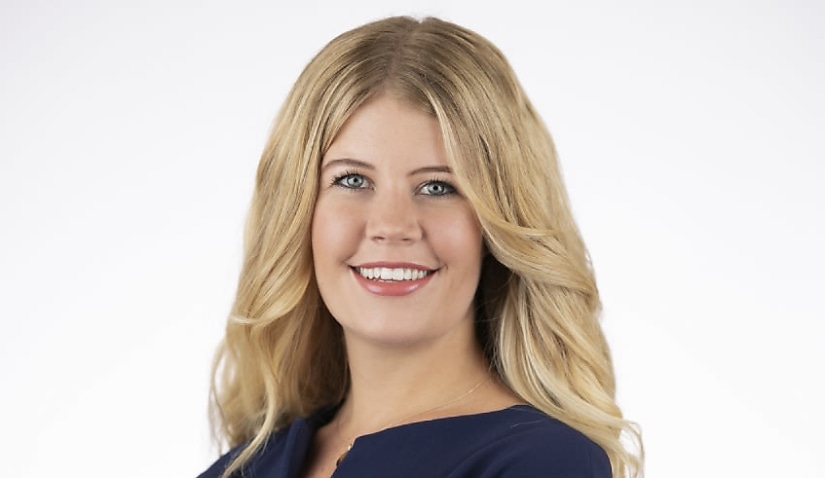Powered by MOMENTUM MEDIA
When it comes to the establishment of employee share/stock ownership plans, the law department plays a “pivotal role”, particularly for businesses that are enacting such incentives.

Linktree general counsel Rosanna Biggs (pictured) recently spoke on The Corporate Counsel Show about how employee share/stock ownership plans (ESOPs) are “picking up steam”, noting that such plans are “definitely” increasing in appeal for in-house lawyers when it comes to attracting and retaining top talent.
During the aforementioned episode, Ms Biggs was asked about the foremost considerations for organisations, and their law departments, when it comes to setting up and implementing ESOPs.
Such implementation goes, she said, “a long way beyond just the plan documents”.
“If you’re in a business that doesn’t have experience in setting up these schemes, the law department is going to play a pivotal role in establishing the whole scheme on a holistic level,” she said.
Ms Biggs also pointed out that “this is a very specialist area of law”, and speaking from her own experience (without holding herself out as an expert), there are a handful of “key things” that in-house lawyers looking to set up ESOPs should think about.
Firstly, she said, work with the business to determine the ESOP strategy.
“Think about the purpose behind the scheme. Is it predominantly to attract top talent, in which case you’re going to need to understand exactly what your benchmarks are, how much you’re willing to offer to different levels and different roles, or is it there to try to retain key talent that you already have within the business?” she said.
Businesses also need to think about top-ups and how to issue additional equity for promotions or re-levels, Ms Biggs continued.
“So, there’s quite a lot to think about in the overall philosophy of how ESOPs fit within your compensation offerings in general. You may want to set up some sliding scales so that people who are being granted options, or any form of equity, can determine what works for them,” she said.
“The salary, and the dependability and stability that comes from a salary, might be much more important to them. And the small component might be on the equity side, or vice versa. People might be willing to take more risk. So, getting your strategy set up to start with is really, really important.”
The aforementioned consideration feeds into a practical step, which Ms Biggs said can sometimes be overlooked: looking at your pool of equity.
“How much do you have to work with? Most companies are going to have a pool reserved on their cap table for employees, because shareholders do understand the importance that ESOPs play. But, the size of that pool will vary,” she said.
“If that pool was established when only senior executives would receive equity, then it might be that you need to increase that pool and go to the shareholders to talk about the need for dilution, the potential upsides of that and how it fits into the broader strategy.”
Following this, Ms Biggs said, the law department and organisation should consider what equity vehicle makes sense.
There are numerous considerations here, he noted, on top of deciding what vehicle is the best fit for purpose, including tax treatments, securities law and dilution. And then, the lawyer will “need to get the plan documents in place and make sure they’re nice and recipient-friendly”.
In this whole process, Ms Biggs outlined, “there will be some trial and error”.
“There’s an educational journey that you will be going on with the business. There’s going to be a steep learning curve. And, as you work through all of the different considerations, you’re probably going to change course a few times,” she mused.
“So, a big tip that I would have for anyone embarking on this journey is to build as much flexibility into your planned documents as you can, and really invest the time in talking with the executive team about what makes sense, and then taking the employees on the journey too, so that they understand not only the ins and outs of the laws that apply, but also have a broad overview of why pivots might be needed with the plan, and whether there might be updates to the rules, because it’s certainly not something you will get spot on to start with.
“A lot of pivoting will come into the operationalising of the plan, because that is probably the hardest part.”
One year ago, Ms Biggs also spoke with Lawyers Weekly about the need for law departments to push for better policies pertaining to diversity and inclusion.
The transcript of this podcast episode was slightly edited for publishing purposes. To listen to the full conversation with Rosanna Biggs, click below:
We're evolving — and so should your insights. Heads up — Lawyers Weekly is going premium from 1 May for just $5 a month. Stay informed without missing a beat. More information coming soon.

Jerome Doraisamy is the managing editor of Lawyers Weekly and HR Leader. He is also the author of The Wellness Doctrines book series, an admitted solicitor in New South Wales, and a board director of the Minds Count Foundation.
You can email Jerome at: